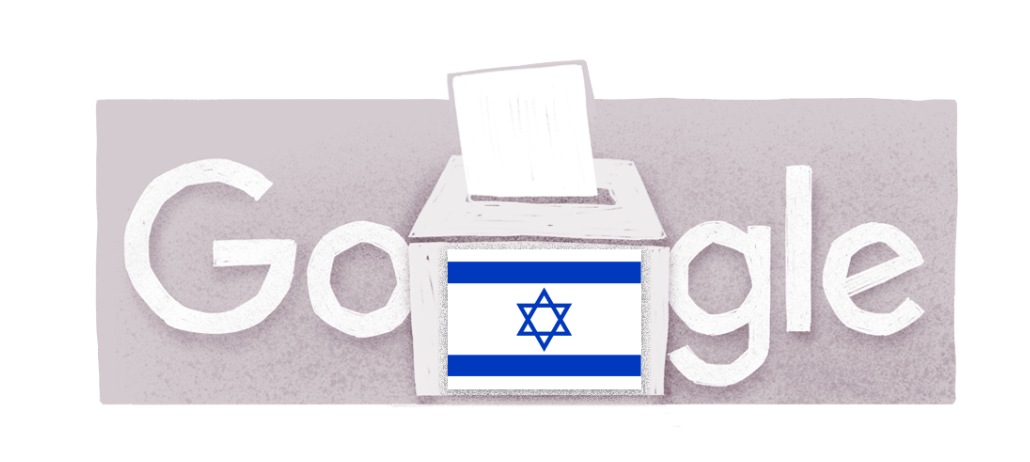Google Doodle marks Dominican Republic Independence Day and Israel municipal elections
27 February marks the Dominican Republic’s Independence Day and Israel’s municipal elections

Your support helps us to tell the story
From reproductive rights to climate change to Big Tech, The Independent is on the ground when the story is developing. Whether it's investigating the financials of Elon Musk's pro-Trump PAC or producing our latest documentary, 'The A Word', which shines a light on the American women fighting for reproductive rights, we know how important it is to parse out the facts from the messaging.
At such a critical moment in US history, we need reporters on the ground. Your donation allows us to keep sending journalists to speak to both sides of the story.
The Independent is trusted by Americans across the entire political spectrum. And unlike many other quality news outlets, we choose not to lock Americans out of our reporting and analysis with paywalls. We believe quality journalism should be available to everyone, paid for by those who can afford it.
Your support makes all the difference.Google Doodle has two artworks today to commemorate two different events on 27 February – the Dominican Republic Independence Day 2024 and Israel’s municipal elections 2024.
The Independence Day doodle depicts the Dominican Republic’s flag floating in the wind, while the election artwork shows the Israel flag on a ballot box.
Dominican Republic Independence Day
On 27 February 1844, a group called La Trinitaria (The Trinity) created a movement that fought for and led to the country’s sovereignty.
The country had a very brief period of independence after it declared independence in 1821 from Spanish rule, but neighbouring Haiti took over the whole island in 1822.
However, in 1838, the writer and activist Juan Pablo Duarte, who is often regarded as the father of the Dominican Republic, started the secret movement La Trinitaria with Matías Ramón Mella and Francisco del Rosario Sánchez.
The group acted in three-person cells and communicated through coded messages and passwords and focused on three ideas: democracy, representative government and independence, Nuestro Stories wrote.

The movement grew into a group called La Filantrópica (The Philanthropists), who made use of public theatre to spread ideas of freedom and liberty, according to New York Latin Culture Magazine.
On this day in 1844, La Trinitaria seized their moment and gathered around 100 men and stormed foreign occupants at Puerta del Conde, forcing Haitian troops to withdraw. Once they were atop the fort, a blue, red and white flag was raised into the sky, History.com said.
In 1861, the country reverted to Spanish rule but once again won its independence again in 1865 after the Dominican Restoration War. The day falls within Carnaval de la Vega, a month-long celebration throughout February.
On this day, people will gather with their families and loved ones; many wear vibrant costumes and masks while enjoying delicacies such as bacalao, which is dried, salted cod, and mango, which is mashed plantains, according to Google Doodle.
Israel municipal elections
After being delayed for months due to being postponed twice due to their conflict with Hamas, Israel is set to take part in municipal elections.
Israel’s incessant bombardment has continued in Gaza; all the while, their initial election date of 31 October 2023 had to be moved to the end of January and now will occur on 27 February.
The elections will include 77 municipalities, 126 local councils and 54 regional councils, the Knesset, Israel’s parliament, said.
The 77 municipalities reflect the largest sector of Israel’s population, around 6.6 million residents, which is 74.4 per cent of Israel’s population.
In all 164 Jewish municipalities, 85 Arab municipalities and eight mixed Jewish-Arab municipalities are heading to the polls today.

The previous municipal election in 2018 had a turnout of 58.7 per cent. Municipal elections used to be held on the same day as the Knesset elections, but the days were separated, resulting in a significant drop in municipal voter turnout.
The Times of Israel reported that areas that have been affected by ongoing fighting will not hold the local elections, as residents have been evacuated, so those elections are slated to be held in November.
Many Palestinians who reside in Jerusalem are expected to boycott the voting, according to Al Jazeera, a practice which has often happened in previous elections ever since the 1967 war.
Around 362,000 Palestinians are in East Jerusalem, most of whom have residency status but are stateless. This means that they can still participate in local elections like the municipal vote, but not national ones, the outlet said.
Join our commenting forum
Join thought-provoking conversations, follow other Independent readers and see their replies
0Comments